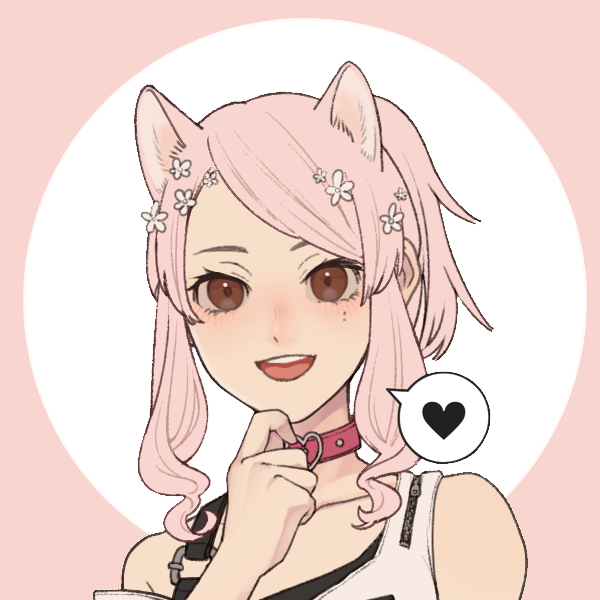- 5 Posts
- 14 Comments

 3·11 months ago
3·11 months agoGood to get confirmation - I cut around it and will see how it goes. If it is a goner, at least now I know what to do better next time 😔

 5·1 year ago
5·1 year agoI think it’s a super complicated topic. My understanding of the quote is that ableism is much bigger and more complicated than language, but we should be aware of how our language reflects ableist views - like the normalization of ableist slurs into our everyday vernacular, for example. In other words, our society is so comfortable with ableism, that even disabled people and advocates for disability rights may use ableist terminology regularly, whether or not they’re aware of the origins.
I, personally, don’t believe that “lame” is necessarily a word that needs to be changed, but I do believe it’s a word with ableist origins. Like our conversation on “dumb”, IMO most people don’t think about the technical definition of “lame” anymore - but I might be wrong, or it might be regional. It’s ultimately a personal choice whether or not it feels hurtful - and obviously, if someone tells you to not use a term around them, that’s important to respect.
The key takeaway, to me, is that we should be mindful of how much ableism is normalized in our lives. I think you’re definitely doing that, based on this post. It doesn’t mean that using terms on this list is only ableist if you’re thinking negatively about disabled people when you use it; it means that we should be thoughtful with our language, but more importantly, thoughtful of how our words and actions may be reinforcing hurtful systems. To use the example from before - if someone doesn’t use the word “crazy” except when describing mentally ill people, that can speak to how they see mentally ill people as not just people who are ill, but as people who are undesirable boogeymen.
Take it on a case-by-case basis, IMO, and follow your gut if you feel shitty about certain words - better safe than sorry. But, at the end of the day, it’s just… complicated!

 9·1 year ago
9·1 year agoNO STRAWS NO STRAWS NO STRAWS NO STRAWS
The dentist will probably tell you everything you need to know, but after having spoken to someone who had 3 dry sockets due to using straws after removing her wisdom teeth, it feels like the most important point to drill in.
My partner had a lot of soylent, fruit/veg juice, soup, apple sauce after the procedure. Get some ice cream or a shake (WITH A SPOON) afterwards if you’re not nauseous - you deserve a treat. Apparently the weird ice from Sonic is really good when you get a tooth out, I’ve never had it lol. Good luck on your procedure, and don’t delay it!! Just get it over with so you never have to think about it again. You’re gonna be fine 💖

 8·1 year ago
8·1 year agoI’m not mute, but to me, using “dumb” to describe someone who is mute sounds… worse? It feels like the equivalent of recognizing that “crazy” has baggage and not using it in everyday speech, but continuing to use it to describe mentally ill people. I understand that it’s not a perfect comparison, but it feels like sometimes, words become too enmeshed in their modern-day insulting uses to feel okay using them to describe a community, even if it is the technical definition of the word.
If anyone who is mute/nonverbal/nonspeaking sees this and I’m wrong - please let me know!! I don’t mean to overstep, I just want to share my perspective.

 3·1 year ago
3·1 year agoThat’s fair. Are you in a place where everybody knows each other? If your parents aren’t really likely to hear it from anywhere else, you can also come out to other people, like at school or in your social circles, without necessarily having to come out to your family.

 11·1 year ago
11·1 year agoI get what you mean, but I disagree. As a teen, I thought I had an obligation to come out to everyone, and make a whole big announcement. It was a huge relief to hear that actually, I don’t owe anyone information that would be exhausting to share and could make my life harder. It was my choice, and no one else’s, and there was no timeline I had to follow.

 7·1 year ago
7·1 year agoExactly this! I pick and choose who knows based on how comfy I am around someone. Like you, I’m bi in a “straight-passing” relationship, so many people aren’t aware; my dad will probably never know unless I date a girl, or he finds out in some random way, but I just don’t really care to share that part of my life with him. The older I get, the less effort I make to keep anything a secret. But I don’t make a strong conscious effort to come out to people if I don’t feel like it.

 23·1 year ago
23·1 year agoHot take, but you don’t actually have to come out if you don’t feel like it. Or, you can come out in another way - for example, when the time comes, be like “hey, I have a [boy/girl/whatever applicable term]friend and I want you to meet them.” If you still want to be out but don’t feel like it right now, maybe wait a little bit and then come out to the people you’re most sure will respond well.
Good luck with your journey and I hope it goes better next time. Just remember to listen to your needs and not push yourself out of any sense of obligation.
Not parents but I just accidentally came out as an NB person (also adult) to my brother yesterday. He had a hard time with me coming out as bi, which confused me, but it’s been nearly a decade since then. I told him I wanted to change my name and he was very confused; I mentioned I wanted something gender-neutral, and he asked if I was nonbinary.
I think he was skeptical, and surprised - he’d lived with me since I was a child, surely if I wasn’t cis, he would’ve known, right? But his partner helped him to approach it with an open mind and to be supportive. Overall, it was way easier and more inconsequential than I thought; at the same time, I’m thrilled to be able to talk about my life authentically, with him and around him, and not worry about every word.
If you want my advice on difficult conversations like this? If it’s safe, do it during a long car ride. It’s a situation where the other person really has to sit with what you’re saying and work through it. Obviously it can cut both ways - they’re stuck with you, but you’re also stuck with them - but in my experience, it’s been great.
For sure. There are so many examples of shitty depictions of trans people from that time, but for some reason, the one that specifically really stuck with me was the movie Click - probably because it was one of the only depictions of FtM people I’d seen in media, like, ever, at the time. It reinforced the idea that if I was trans, that would be a horrible thing, and I could never let anybody know.
I’m so glad that things are so completely different now; the depictions of trans people in media now are so varied and there are many really positive ones, and it’s really lovely to see the trans pride flag out and about. Being a transphobe is popular among shitheads, but it’s much more uncool than back then; if you’re openly a transphobe nowadays, most people probably hate dealing with you.
Definitely feel it on the suppression front. I remember “figuring it out” when I was around 12, when I’d first heard of being trans, and knowing that that was me, and that I needed to shove it down as deep as possible because of what everyone said about trans people. I didn’t really start coming out as nb until I was maybe 24, and now it’s just amazing to live in a new place with new people who all know me as I really am. I’m so much happier now 🥺
I know it’s not the case everywhere, but I also am so amazed at how different things are for kids/teens nowadays. I felt like a freak that had to hide forever so no one could learn my horrible secret. Now, there are people I knew as babies who are out, and their friends celebrate them so authentically. Being out in high school was unimaginable to me; it’s really beautiful to see that things are so different. Things are getting better socially (even if politically they’re still a dumpster fire), and it gives me hope for the future.
And I really am indecisive as all hell 😭 I’m the reason for all the stereotypes :'(
Yes! I love being bi and nonbinary. I love that it opened me up to a huge community of people who I otherwise might not have gotten to know. I love girls and I love guys. I love sharing my love of girls with my male partner. I love being seen and accepted for who I am in ways that are comfortable for me - not trying to conform to an image of masculine or feminine, but rather, being seen as someone who is both and neither, just getting to be “some guy” and “a cute girl” at the same time.
I don’t regret a thing about it; my only regret is that I didn’t figure out I should do something about not being cis sooner, and that I could’ve gotten puberty blockers before it was too late. If I could’ve delayed puberty, I could avoid having to save up tens of thousands of dollars for top surgery.


Is there a typo here? If you make 140k a year in the US it puts you in the top 10% of earners, but still below average. Yes, part of the richest in the sense that most of the world probably makes less than you, but nowhere near the richest in terms of what these statistics are talking about when they refer to the top 1% - ie. people who make close to, if not more than, a million dollars per hour.
That is to say - someone making 140k is not capable of the levels of pollution that people with private jets, who take dozens of flights every year - not even scratching the surface of their shopping and eating habits, and the pollution caused by their businesses and investments.